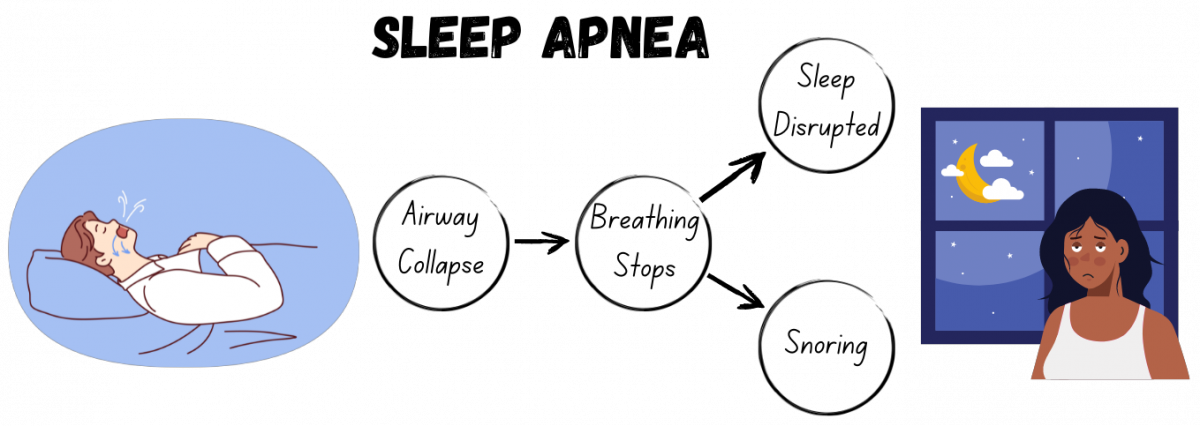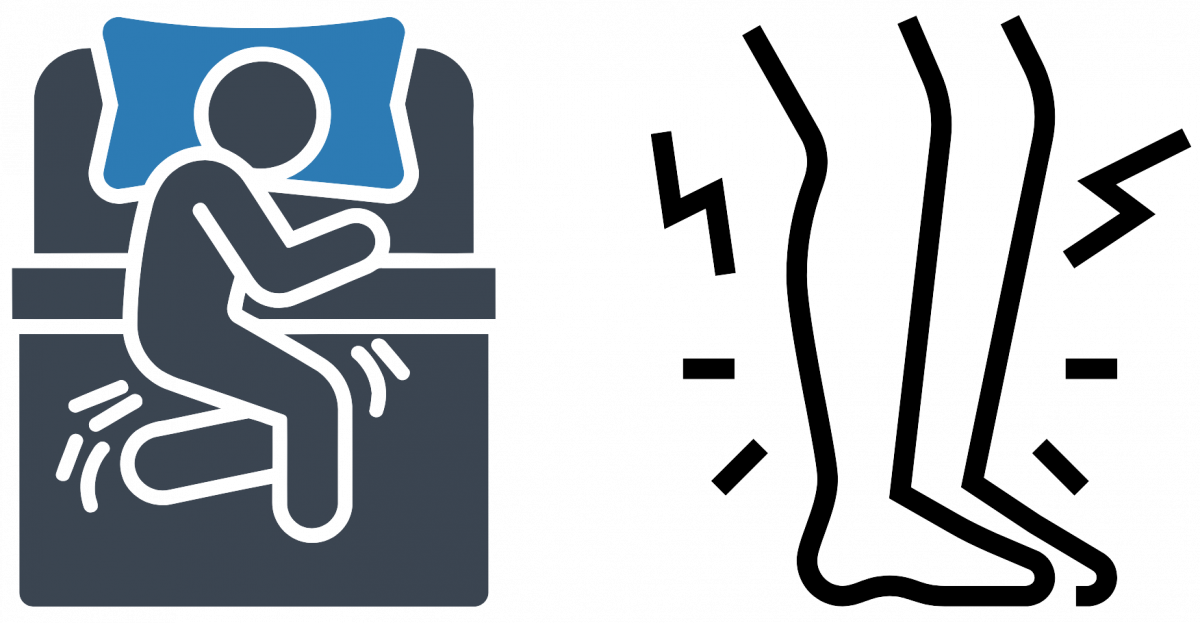What are sleep disorders?
Sleep disorders are health conditions that affect the quality, amount, and timing of sleep that a person gets. Sleep disorders often lead to sleep deficiency and are common among adults.
Click the dropdowns below to read more about common sleep disorders. To learn more about sleep disorders, you can visit the CDC's website1. If you feel that your sleep is inadequate, please talk to your doctor.
Insomnia
Insomnia
Chronic insomnia occurs when a person has difficulty initiating sleep or waking too early in the morning for 3 or more times a week for 3 months or more and is not explained by another health problem. Around 30% of the adult population are affected by chronic insomnia and 10% have insomnia that affects daytime function.

Treatments for Insomnia
Cognitive Behavioral Therapy (CBT)
- CBT is a tool to help people focus on their behaviors, cognitions, and perceptions (perpetuating factors).
- CBT can have equal or better effects than dugs and can have longer lasting effects.
- There are minimal side effects to CBT compare to using drugs.
CBT can be done in individual or group sessions. It can be done via face-to-face, telehealth, or online format and be brief (2 sessions) or up to 8 weeks. CBT is led by trained therapists (psychologists, physicians, or nurses).
Prescription Medications
There are several groups of medications that may be prescribed for insomnia including, but not limited to
- Hypnotic medications
- Psycho-active medications with sleepiness as a side-effect
- E.g. Trazadone, amitriptyline, doxepin, trimipramine, mirtazapine, olanzapine, quetiapine
- Anticonvulsant medications
- E.g. Gabapentin, pregabalin
- Melatonin receptor agonists
- E.g. Ramelteon
- Other
- E.g. Chloral hydrate, Sodium oxybate
Over-the-Counter Medications
There are over-the-counter medications that can also help with sleep:
- Melatonin
- Antihistamines
- E.g. Diphenhydramine, Doxylamine
- Herbal remedies
- E.g. Valerian
Obstructive Sleep Apnea
Obstructive Sleep Apnea
Obstructive sleep apnea occurs when the airway becomes blocked repeatedly during the night. Some characteristic symptoms of obstructive sleep apnea are snoring, choking or gasping during sleep, and fatigue or daytime sleepiness. Around 20% of the adult population have obstructive sleep apnea and people who are obese or have high blood pressure are at an increased risk of developing it.

Treatments for Obstructive Sleep Apnea
- Continuous Positive Airway Pressure (CPAP)
- A CPAP machine can reduce apneas and hypopneas and improve sleepiness, however, adherence to using the machine regularly can be difficult.
- Weight loss
- Oral appliance
- Surgery on upper airway
- Hypoglossal nerve stimulation
Restless Leg Syndrome
Restless Leg Syndrome (RLS)
Restless leg syndrome (RLS) is a neurological disorder that is triggered by resting and characterized by unpleasant or uncomfortable sensations in your legs leading to an irresistible urge to move them. Symptoms are more common in the late afternoon or evening and are the most intense during the night. It is estimated that 7-10% of the U.S population may have RLS.

Treatments for RLS
While there is no cure for RLS, medications and lifestyle changes can help alleviate symptoms.
Prescription Medications
There are several groups of medications that may be prescribed for RLS including, but not limited to
- Iron supplements
- Anti-seizure medications
- Dopaminergic agents
Lifestyle Changes
There are several lifestyle changes that may be recommended for RLS including, but not limited to
- Avoid or decrease the use of alcohol, nicotine, and caffeine
- Change or maintain a regular sleep pattern
- Try moderate, regular exercise
- Massage the legs or take a warm bath
- Apply a heating pad or ice pack
- Use foot wraps specially designed for people with RLS, or vibration pads to the back of the legs
- Do aerobic and leg-stretching exercises of moderate intensity
1Reference to specific commercial products, manufacturers, companies, or trademarks does not constitute its endorsement or recommendation by the U.S. Government, Department of Health and Human Services, or Centers for Disease Control and Prevention. This material is otherwise available on the agency website for no charge.